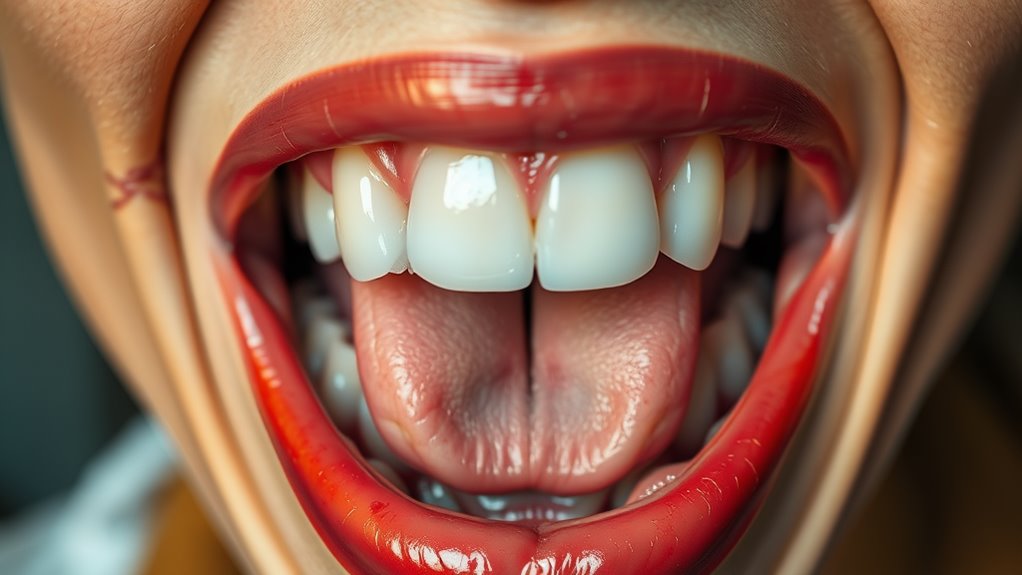The Link Between Oral Health and Overall Wellness
Consider how someone with gum disease may face an increased risk of heart disease or diabetes. This is just one example of the intricate relationship between oral health and overall wellness. Poor oral hygiene can lead to systemic issues that affect various aspects of your health. Understanding these connections is essential, as it emphasizes the importance of preventive measures and daily habits. What might this mean for your health and lifestyle choices?
The Mouth-Body Connection
While you might think of oral health as separate from your overall well-being, research reveals a significant link between the two.
Maintaining good oral hygiene provides various oral health benefits, such as reducing the risk of infections, improving nutrition, and enhancing self-esteem. Additionally, oral health influences systemic inflammation levels, impacting overall body health and disease risk.
Impact of Oral Health on Chronic Diseases
Oral bacteria can trigger systemic inflammation, which has implications for various chronic diseases.
If you have diabetes, for instance, poor oral health can exacerbate gum disease, creating a vicious cycle that complicates blood sugar control. Gum disease increases the risk of heart attacks and strokes by 2-3 times, highlighting the significant interplay between oral health and overall wellness.
Understanding this connection is essential for managing overall health and preventing further complications.
Oral Bacteria and Inflammation
When you think about your overall health, the role of oral bacteria may not be the first thing that comes to mind, yet it plays a critical role in the development of systemic inflammation.
These bacteria can enter your bloodstream, triggering inflammatory responses that exacerbate chronic diseases.
Maintaining good oral hygiene helps reduce harmful bacteria, promoting both oral and systemic health.
Diabetes and Gum Disease
Maintaining healthy gums is essential, especially if you have diabetes, as gum disease can worsen blood sugar control and lead to further complications.
Periodontitis can create an inflammatory response that increases insulin resistance.
If you neglect oral health, you’re at higher risk for chronic conditions.
Regular dental check-ups and consistent oral hygiene are critical for managing both your oral health and diabetes effectively.
Oral Health and Mental Well-Being
Your oral health notably influences your mental well-being, as dental issues can lead to emotional distress and decreased self-esteem. The ability to smile confidently isn’t just about aesthetics; it directly impacts how you perceive yourself and interact with others. Addressing dental problems is essential for fostering a positive self-image and overall mental health. Furthermore, it’s important to recognize that anxiety affects overall body health, including your dental well-being.
Emotional Impact of Dental Issues
Dental issues can greatly affect emotional well-being, as people often experience feelings of anxiety, embarrassment, and depression related to their oral health. The following table outlines the emotional consequences of dental problems:
| Emotional Impact | Causes | Potential Solutions |
|---|---|---|
| Anxiety | Fear of treatment | Regular dental visits |
| Embarrassment | Visible dental issues | Cosmetic procedures |
| Depression | Chronic pain and discomfort | Counseling or support groups |
Smiling and Self-Confidence
While many overlook the connection between oral health and self-confidence, a bright smile often serves as a powerful tool for enhancing one’s mental well-being.
A healthy mouth can lead to improved self-image, reducing anxiety and boosting social interactions. When you’re confident in your smile, you’re more likely to engage with others, fostering connections that further enhance your overall happiness and mental health.
Preventive Care and Its Importance
Preventive care plays an essential role in maintaining oral health and promoting overall wellness.
Regular dental check-ups, cleanings, and screenings can detect issues before they escalate, reducing the need for extensive treatment.
Practicing proper oral hygiene at home, including brushing and flossing, further prevents cavities and gum disease. Additionally, visiting the dentist twice a year helps ensure the early detection of potential health issues, fostering better overall health outcomes.
Nutritional Influences on Oral Health
Nutrition profoundly impacts oral health, as certain dietary choices can either strengthen your teeth or contribute to dental issues. Consuming calcium-rich foods like dairy strengthens enamel, while vitamin C is essential for gum health. Conversely, high-sugar diets promote decay and acid formation, leading to cavities. Hydration also plays an important role in saliva production, which protects your teeth from harmful bacteria. Limiting sugar intake can effectively reduce the risk of cavities, helping to maintain better oral health.
Building Healthy Oral Hygiene Habits
Effective oral hygiene habits are essential for maintaining not just your oral health but also your overall wellness.
Brush your teeth twice daily with fluoride toothpaste, and don’t forget to floss regularly to remove plaque from between your teeth.
Additionally, schedule routine dental check-ups to identify potential issues early.
These simple practices greatly contribute to your long-term health and well-being. Regular exposure to fluoride for cavity prevention strengthens enamel and enhances long-term dental health.




